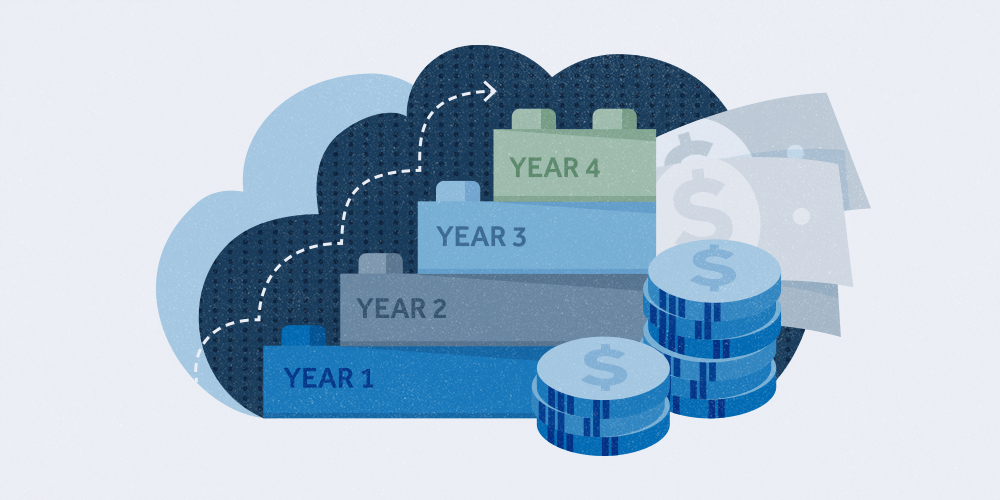What term should you choose for your GIC? It’s an ongoing dilemma. If interest rates are low, should you invest for one year with the hope that next year the rates will be higher? What happens if you invest for five years and the rates go up, trapping your investment at a lower rate? What to do?

The answer is a GIC laddering strategy. It allows you to invest for a term period of your choice (two-year, three-year, four-year, etc.) where rates are generally higher, but gives you flexibility because the investments are maturing each year.
The idea behind a laddering strategy is simple.
Divide the amount of money you want to invest (your initial investment) by the number of years you plan to invest it. For example, if you were investing for five years you would take 20% of your funds and invest in five separate term GICs.
In this example, each year 20% of your investment will mature. Reinvest that money for another five years. Over the course of five years all of your funds will be invested for five year terms, with 20% coming due each year. You can add more money at renewal each year.
Advantages of a laddered GIC
- You can access income at regular intervals if you need it.
- The longer term GICs earn higher rates, even if interest rates fall in the meantime.
- If interest rates go up, you can re-invest your GICs at higher rates as they mature each year.
- Your investment income is more predictable.
- It answers the question about how long you should invest—the answer is always in the strategy.
Remember—your GIC deposits at Servus, including the interest earned, are 100% guaranteed. And if you're already a Servus member, you can invest in GICs right in online banking, making your laddering strategy that much easier to put in place.


